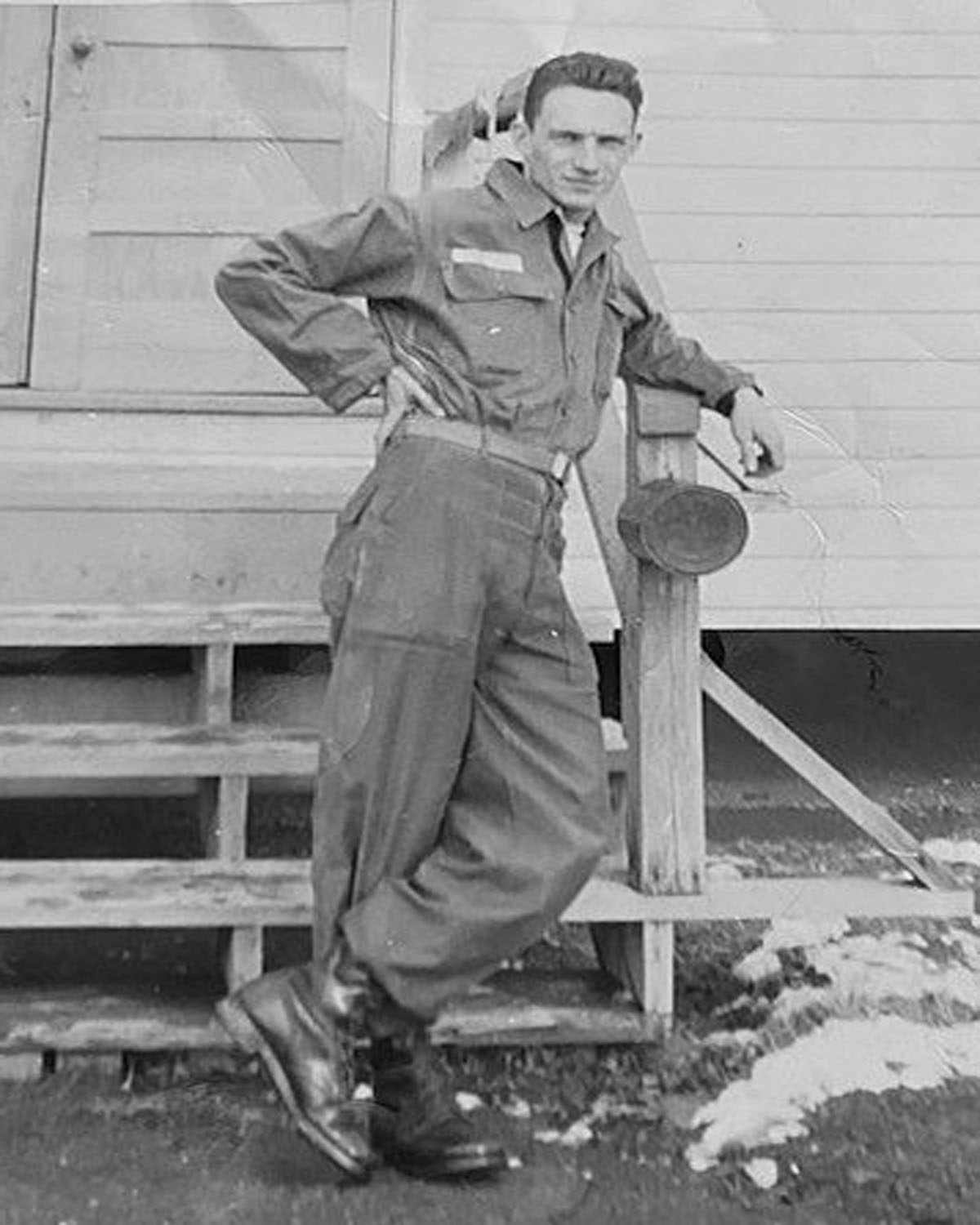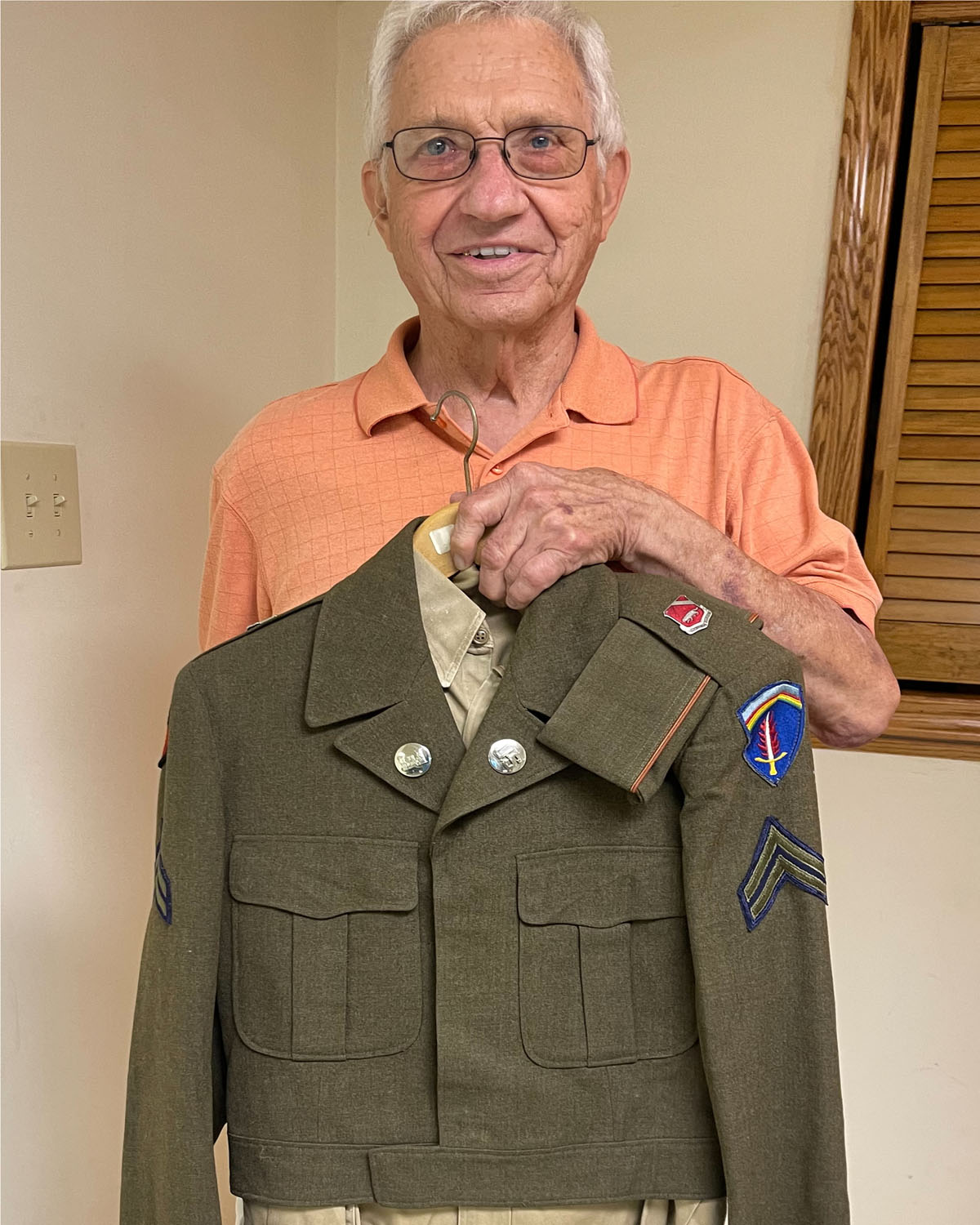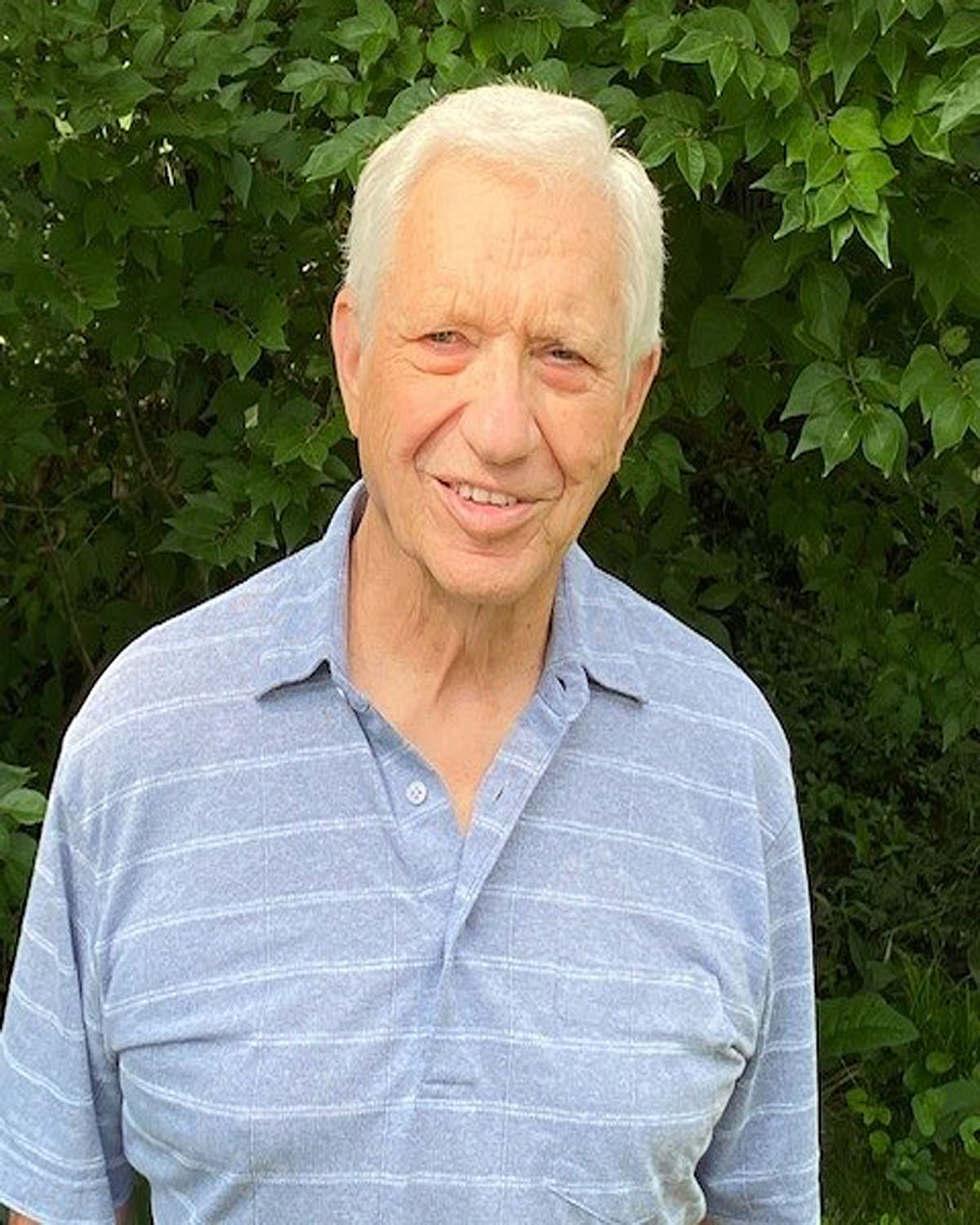U.S. Army Korean War Orland Park, IL Flight date: 08/18/21
By Marty Zack, Honor Flight Chicago Veteran Interview Volunteer
“Not the usual experience” is a phrase that accurately describes Mr. Norton’s family and his service life. Raised by his mother, who divorced early in his childhood, Phillip spent most of his childhood years in Englewood on the south side of Chicago and in Bridgeport. He had decided early in his life that he wanted to serve, and enlisting in the Army was the fastest route.
He wanted to join the Army at the age of 17, but because his mother was dying, he remained at home to help care for her as best he could. He was working at a Spiegel outlet store at the time as well. Unfortunately, it wasn’t long before his mother passed away and his grandmother became his legal guardian. Because of the loss of her brother in WWII, Phillip’s grandmother refused to sign paperwork to allow him to enter the service early. She said “In a few months, you can do whatever you want. As long as it’s up to me, you’re not going.”
Soon after turning 18, Phillip enlisted in the Army. He was one of seven friends who signed up together and coincidentally, none of these friends had a father either. Phillip was sent to Fort Chaffee, Arkansas to begin his specialized training in disarming munitions. He was also trained in demolition, specifically bridges and transportation hubs. This was the first available assignment and Phillip was eager to serve. He was then sent to Fort Riley, Kansas and finally to Fort Leonard Wood, Missouri to complete his training.
During this time, Phil worked in the kitchen. He recalls one day, he was in charge of making the corn for everyone and as he was stirring the massive vat, he had an uncontrollable urge to sneeze. It came on so quickly and caught him off guard, that he sneezed directly into the vat of corn. His superior witnessed this and called him over.
“Did you just sneeze in that corn, son?”
“Yes, sir!” he answered.
“Now, why in the hell did you do that?”
“I couldn’t help it, sir!” After being tested by medics for any contagious diseases, he was told to turn the heat up and cook the corn for a little while longer.
When Phillip was assigned to serve in Europe, he endured a grueling nine-day-long boat ride. During this trip, accommodations included canvas beds stacked six bunks high. Phil says “You didn’t want to be on the bottom bunk with several levels of crew mates above you suffering from seasickness. Gravity did not quite work in one’s favor.” Phil got a “Dear John” letter as soon as he landed overseas which was actually a blessing in disguise. It allowed Phil to meet the love of his life when he returned home.



Initially stationed in Kaserne, Germany, Phil would find himself throughout Europe, with stops in France and Italy as well. “There was a lot of animosity towards us from Germans, and it was completely understandable. But I made some friends too.”
It was the job of his unit, the 94th Combat Engineers to clear out any munitions before the infantry arrived. Daily life with the combat engineers would switch between training for disarming munitions and demolition work. They slept mostly in huts or barracks and occasionally in tents as they made their way through the countryside during the day. Phil insisted that the food wasn’t as horrible as you hear, “Nothing to write home about!” Phil said, “but not terrible.”
Phil agreed that his experience defusing munitions was a stressful job due to injuries and close calls but he still felt he was better off compared to those in combat. There was no malicious intent behind the bombs that he personally dealt with or attacks from individuals. This was unlike many of his friends who served elsewhere. Theirs was a far worse plight to him and he was grateful to have the privilege of serving and protecting the lives of his fellow servicemen, while doing a job he enjoyed. Phil shared that modern warfare explosives are far more focused on individuals than when he served.
Phil returned to Europe 8 months after the end of his service with his Army buddies. They frequented a bar in Nellingen, Germany where there was a bartender he befriended. “We may have set U.S./German relations back a few years! We all had fun and enjoyed ourselves since we were all in our early 20’s with a few bucks in our pockets after discharge.”
When Phil returned home, he got a job as an ironworker with Perini Ironworks. His job at Perini turned out to be a fruitful endeavor in more ways than one. While Phil worked his way up to Project Manager, working on numerous historical jobs in Chicago, he also met his wife of 65 years, Antoinette. When I asked Phil the secret to the success of his long marriage he said, “She didn’t have to renew her marriage license like you do your driver’s license.”
Together, they started a family and had three sons. They enjoyed camping and going to ball games. As the years went on, they became grandparents of 10 and great-grandparents of five. Phil has taken up golf which he truly enjoys. However, he doesn’t understand why people call it a relaxing game. He laughs when many get quite upset while they play.
After reflecting, Phil concluded with: “I think my life was pretty good.”
Most would agree, Phil….
Thank You Phillip for your service. Enjoy your well-deserved day of honor.


